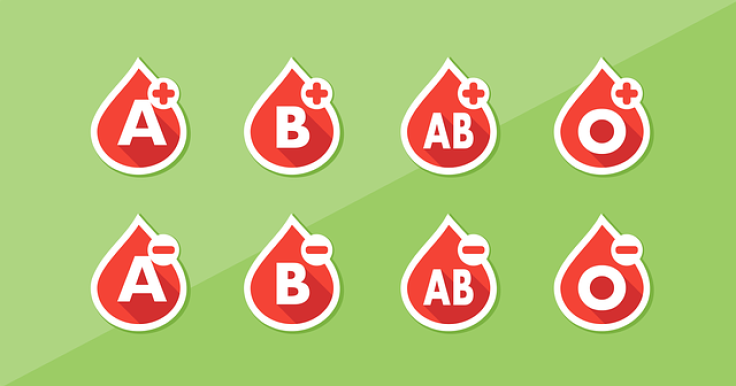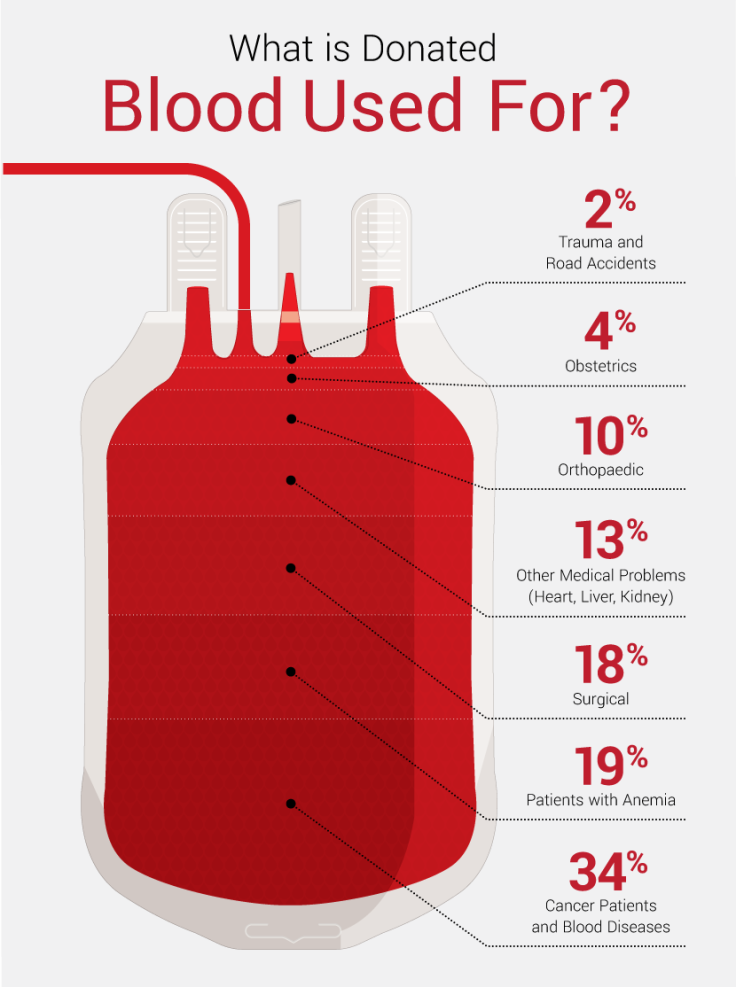Where Does Donated Blood Go? How Your Blood Is Processed And Who It Helps, Once You Donate

Donating blood is relatively easy: Sit in a reclining chair for 15 minutes while a technician pumps a few pints of the good stuff out of you, and then enjoy an unlimited supply of cookies and apple juice. However, most donors do not know where their blood goes once it leaves the center — what really happens to blood may surprise you.
According to the American Red Cross, the blood is first transported to a lab, where it is then tested for disease. After the blood has been approved for donation, it is then processed and divided into three parts: Plasma, red blood cells, and platelets.
Read: 10 Surprising Facts About Donating Blood
All these different parts of blood can be given to patients with different needs. For example, according to the Australian Red Cross, red cells are given to patients who have low red cell counts, such as cancer patients going through specific cancer treatments that affect the body’s ability to make new red blood cells, or women who have lost a certain amount of blood during childbirth. Platelet transfusions are for individuals who have low platelet counts and are at higher risk of bleeding out, often due to chemotherapy, major surgery, or severe trauma. Plasma, on the other hand, is used for a wide range of medical and surgical needs, such as heart surgery or individuals with severe blood loss.
According to the American Red Cross, each different component of the blood also has a different shelf life. For example, platelets can be stored for only around five days. Red blood cells last for around 42 days while plasma can be kept for up to a year. Local hospitals will place orders for the blood products they need and when a blood match is made, the donation is transferred, with one pint potentially being able to save up to three lives.
The large majority of blood donations (34 percent) go to help cancer patients and patients with specific blood diseases. Blood also goes to surgical needs, obstetrics, and patients with heart, liver, and kidney problems. Only about two percent of blood donations go to trauma and road accident victims, making this the least common use for donated blood.

Source: Fix.com Blog
See Also:
Regular Blood Donations Could Potentially Save Over 1,000 Lives



























